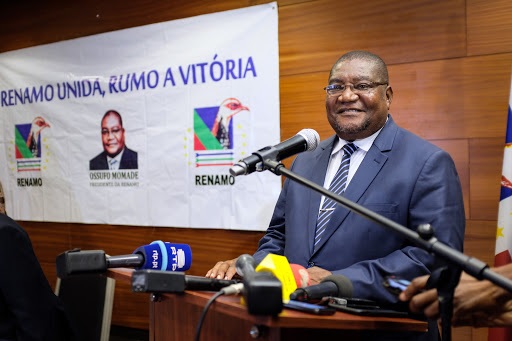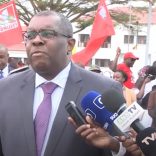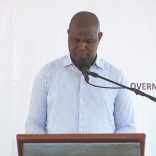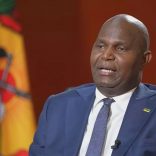Mozambique: At least 45 homes burned down by alleged terrorists in Nampula province - government | ...
Disarmament of 5,000 Renamo guerrillas about to take off – Momade

File photo: Lusa
The disarmament of 5,000 guerrillas of the Mozambican National Resistance (Renamo), the country’s main opposition party, is about to take off, Renamo leader Ossufo Momade has said in an interview with Lusa.
“Next week [the one which is currently underway], we are going to restart the process,” he said. This follows the signing in August 2019 of peace and cessation of hostilities agreements with Mozambican president Filipe Nyusi.
Seven months later, no guerrillas have handed over their weapons, with the exception of 10 Renamo officers appointed to the Mozambican Police General Command, who completed their training in November.
The ten represent “the beginning”, Momade says, emphasising: “We are the ones who are most interested in seeing the process move forward.”
The delay in starting the demilitarisation, demobilisation and reintegration process (abbreviated in political circles as DDR) is due to timing, the Renamo leader says.
“We stopped for the elections, because we couldn’t deal with both issues at the same time,” he explained. Campaigning for the October general elections started in late August.
Then, at the end of the year, “the international community asked to be out of Mozambique” for the Christmas and New Year festivities.
Now, everything is being finalised for the roll-out at the Renamo base in Savane village, Dondo district, in the centre of the country – a coastal village in Sofala province, a few kilometres north of Beira.
“In Dondo district, the process is already very advanced. The guerrillas there already have [bank] accounts and a Tax Identification Number, so that they can receive the benefits.”
The 5,000 men have two options when they hand over the weapons. Some will join the police, while others will be demobilised and reintegrated into society.
For those who are demobilised, Momade asks for “a demobilisation that benefits them, so that what happened in the past” – when they received “a machete, a hoe and bucket” – does not happen again.
“We want a decent demobilisation” so that every ex-guerrilla “can return to his village with dignity, and can make a difference”, Momade stresses.
Renamo wants attention for both the person demobilised and his family, who, he says, often also end up discriminated against, partly because Renamo’s base areas have less infrastructure. “In some places, there is no school, no drinking water, no energy. There are no jobs and no health [services].”
The support package to be given to each guerrilla “is still under consideration”, Momade says, but he believes that an agreement on this issue could be reached “in the coming days”, so that it can be signed by himself and the President of the Republic, with the support of the international community.
When asked about the guerrillas, the response from the Renamo leader is simple: “They are normal people.” He classifies them as honest and loyal to the party’s orders, recalling that none broke the truce decreed by the former party leader, Afonso Dhlakama, in December 2016.
“If we didn’t have honest people who did their duty, we would have an anomalous situation,” he says.
Momade distances himself from the guerrilla group led by Mariano Nhong that has violated agreements and is suspected of the armed attacks that have killed 20 people since August along the roads and in villages in the centre of the country, characterising them as deserters.
With the financial support promised by the international community, Momade believes that the DDR process will be successful, but will not commit to a completion date.
“That would be premature. We are still working on the official document [on support for those demobilised] and it is from that document that we will have dates for the beginning and ending.”
Negotiating with the head of state and president of the Mozambique Liberation Front (Frelimo) “is not easy”, Momade admits, but one cannot “dwell on the negative”.
“When we signed the [peace deal, in August], we did not expect to have the elections we had,” he says, reviving the allegations of fraud also supported by observation missions. “But we can’t mix up these things,” he says.
“We committed to bringing peace. It is this that we are carrying out, so that we can guarantee that the Mozambique does not return to war,” he concludes.












Leave a Reply
Be the First to Comment!
You must be logged in to post a comment.
You must be logged in to post a comment.